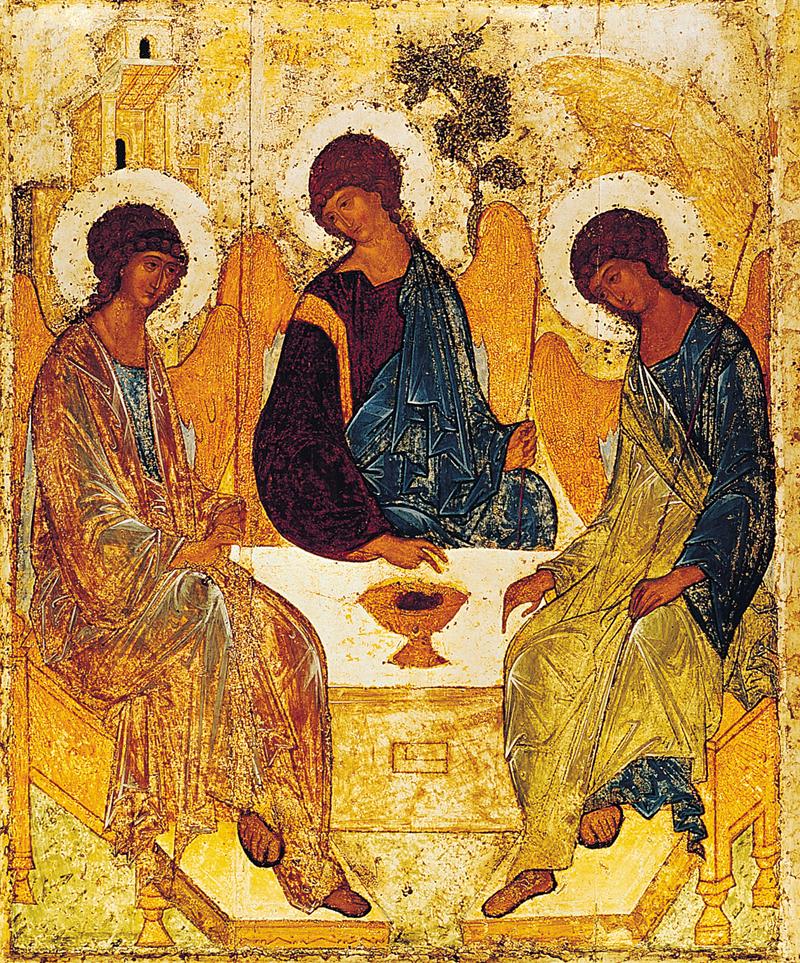But thanks be to God, who in Christ always leads us in triumphal procession, and through us spreads in every place the fragrance that comes from knowing him. For we are the aroma of Christ to God among those who are being saved and among those who are perishing; to the one a fragrance from death to death, to the other a fragrance from life to life. Who is sufficient for these things? For we are not peddlers of God’s word like so many; but in Christ we speak as persons of sincerity, as persons sent from God and standing in his presence.
–2 Corinthians 2:14-17
Thinking of aromas puts me in mind of the Russian olive trees when they are in bloom, and how their perfume fills the air on the balmy evenings of early summer. I associate that smell with a sort of freedom, with taking my bicycle out after dinner and riding along the edge of town where the pastures are full of golden light. I smell the trees long before I see them.
Or then again it reminds me of the animal that lived under our house for a couple of weeks during a real cold snap at midwinter. My family wanted to know what it was. Was it a skunk? No, I explained. Even when they are not spraying, skunks have a very distinctive odor.
What does knowing God smell like? Perhaps it’s the odor of love – not the romantic kind but the tough and stubborn kind that feeds people at the soup kitchens, visits them in prison, teaches them to read English or solve their math problems, or gives them a home. Maybe that aroma permeates us when we truly engage in radical welcome, opening our arms and hearts to people different from us – learning from and being changed by them.
Or then again maybe it’s that peculiar smell that belongs to libraries and churches, a distillation of the wisdom that accumulates through study and worship. If so it emanates from all the world’s holy places. It is the scent of dust, sweat and smoke at the Sundance. It’s the odor of incense and fresh cut flowers in the Vedantic chapel.
Or perhaps the smell of knowing God is the odor of prayer. Maybe this knowing smells like the flash of gold in candlelight, the lift of a chant, the sign of the cross, the inhalation of a breath, the quiet puff of a kiss.
Andrei Rublev, whose feast day it is today, was a writer of icons. His windows to the Kingdom of Heaven are bright jewels that exude stillness, peace, connection. They have been used in prayer for many centuries. Each painted eye and each elongated finger within them secretes a strong whiff of relationship with God. All you have to do is get near enough and look, any you will be overwhelmed by the heady odor.
The aroma of knowing God is us. It is us being who we most deeply are. This smell is our passionate commitment to the world, our willingness to die for love, our tender hearts and our steely souls. When we are being who we were created to be fully, God exudes from us like stench from a skunk or the sweet perfume of blossoms from a Russian olive. When we are in prayer, in study, in communication, doing art, feeding people, longing writing, waiting we stink of God. All anyone has to do is to take in a deep breath of the real you and the authentic me, and God is there.
This is all the more reason, don’t you think, to quit paying attention to what our families, our friends, and our societies want us to do and instead be our own true selves? It is all the more reason to live as fully and intentionally as we can.
Laurie Gudim is a writer and religious iconographer who lives in Fort Collins, CO. You can view some of her work at Everyday Mysteries.
Image: Icon of the Holy Trinity, by Andrei Rublev, public domain

